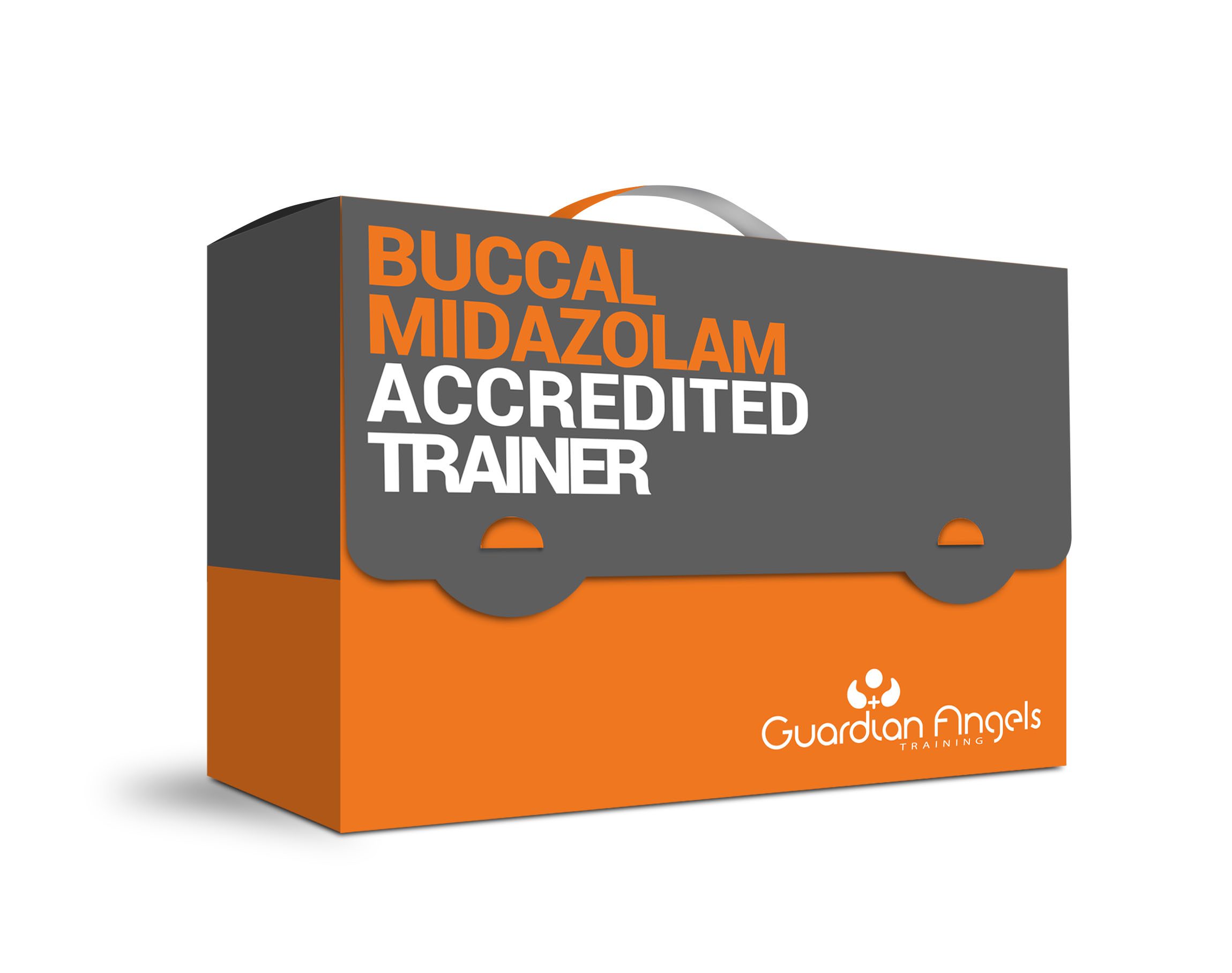
Tracheostomy Care Training
Our course is designed to ensure that health care and support workers have the knowledge, understanding and clinical skill to confidently, safely and competently perform Tracheostomy Care to patients and service users.



There are a number of ways to treat epilepsy, with Buccal Midazolam being one of the most prescribed rescue medications for epileptics who suffer from prolonged or repeated cluster seizures.
Understanding epilepsy and the methods used to treat it in an emergency is essential for healthcare providers and anyone else who might need to administer rescue treatment.
Our in-depth Buccal Midazolam training course will provide all the information and methodology required to not only administer Buccal Midazolam safely but also understand why it is used instead of other treatments or medicines.
At Guardian Angels, we know that just a demonstration isn’t enough to be considered proper training, and by going the extra mile we can help you keep people safe and healthy.
Buccal Midazolam is a medicine used to treat epileptic seizures. Midazolam is the medicine itself and ‘buccal’ refers to how the medicine is administered, in this case via the space between the gum and cheek.
This is important to know, as other medicines such as Rectal Diazepam, are, as the name suggests, administered rectally. Although this medicine is less common than Buccal Midazolam, it’s important to understand all treatments currently in use.
Our course covers all the most common epilepsy treatments in detail, and we have additional resources for any that are more obscure or aren’t covered during the training session.

Buccal Midazolam is the most commonly prescribed rescue medication for those who have epilepsy and experience prolonged or repeated cluster seizures. We offer Buccal Midazolam training in the administration of Buccal Midazolam and other rescue medications.
We offer bespoke training in Buccal Midazolam administration, as well as Rectal Diazepam and Rectal Paraldehyde. Buccal Midazolam Administration can also be delivered as a single topic if participants have already completed Epilepsy Awareness training.
Our rescue medication training is bespoke to the needs of your organisation. You can benefit from a range of optional add-ons depending upon the requirements of your patients and service users. As Buccal Midazolam is the most commonly prescribed rescue medication for epilepsy, the course is primarily focused on the administration of this. However, our highly experienced nurse educators are able to deliver individualised training for other rescue medications should your organisation require it.
Here’s how the course itself is structured.
As mentioned, these courses can be customised to suit your exact needs and there are a few to choose from.
Typically courses would include Epilepsy Awareness, Seizure First, and the Administration of Buccal Midazolam.
They all cover the following:
Our Buccal Midazolam Training and Rescue Medication Administration course is for practising healthcare professionals and support workers.
If your team looks after someone or multiple people with epilepsy, it’s vital that they’re providing the best care possible and can respond quickly and correctly in an emergency.
Our course helps to ensure carers have the necessary skills to safely administer rescue medication, whether this be at home, within a care home setting, or in hospital.
It’s important to note that the course is not open to individuals. We operate on an organisational basis, providing training to groups of employees from a specific place of work. We operate in this way so that we can offer course content and training that is fully bespoke to the needs of your employees, patients, and service users.


Our course is designed to ensure that health care and support workers have the knowledge, understanding and clinical skill to confidently, safely and competently perform Tracheostomy Care to patients and service users.


The “Understanding Suctioning Techniques and Practices” course is meticulously designed to provide healthcare professionals with comprehensive knowledge and practical skills related to suctioning procedures.


Healthcare professionals including nurses and doctors who are expected to administer ECGs as part of their daily responsibilities will benefit from undertaking this particular training course.


Our Supervision and Monitoring Training course has been designed to communicate exactly what it is that makes for an effective and professional supervisor while addressing the differences between supervisory and standard employee roles.
